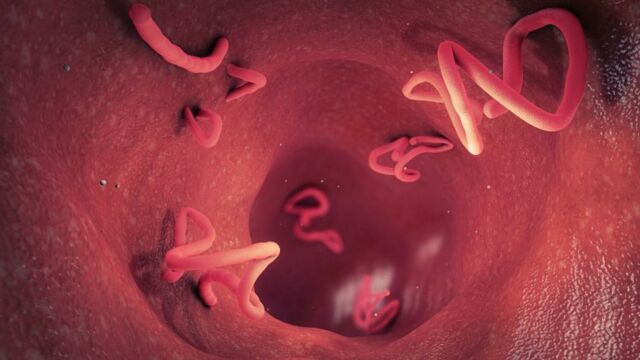Parasitic infections are some of the most common infections on earth. These don’t affect just the developing world but are prominent everywhere. From consuming uncooked meat or fish to unwashed produce and unpasteurised milk there are many ways food can cause parasitic infections, which could also be contracted through exposure to unhygienic surfaces and bodies of water. These parasites will stop at nothing to insert themselves into your body and live off your nutrition and energy. Here’s everything you need to know about the potential symptoms, medical treatments and lifestyle changes you could pursue to rid yourself of these little creatures.
Discover our latest podcast
What are parasites?
According to the Cleveland Clinic, parasites are organisms that 'live in, on or with another organism'. They rely on the host for survival and feed or grow or multiply in a way that harms said host. They often do not kill the host but rather cause symptoms and illnesses that can become life-threatening later on.
Parasite symptoms
While parasites usually do bring about symptoms, they sometimes can take time to show and in rarer cases, the host might not experience symptoms at all. It is important to note that most parasites are hard to catch because the symptoms they induce could be easily attributed to other illnesses. These include:
- Diarrhea
- Abdominal pain
- Gas
- Bloating
- Fatigue Vomiting
- Weightloss
- Itching of the anus
- Skin rashes
What to do if you think you have a parasite
The first thing one should do is seek the opinion of a medical professional who will most likely conduct a series of tests such as fecal testing which involves an examination of your stool by a laboratory and a 'Scotch Tape' test to identify pinworms by touching tape to the anus several times. However, if you are fairly uncertain and don't want to go through the medical process, there are alternatives that one could pursue such as parasite cleanses which help clear the problem up.
Parasite cleanses
Parasite cleansing diets 'require you to consume healthier food'. According to the Sydney Gut Clinic, they start off by eliminating processed foods, gluten, pork, and even dairy. Natural and whole foods will become your primary source of nutrition. It is also recommended to add anti-inflammatory herbs and spices (turmeric, ginger, cardamom, black pepper, ginseng and garlic). Furthermore, it is also recommended to consume probiotics which have been found to strengthen the digestive system. Whether you have parasites or not, these cleanses will in fact benefit you overall as they will steer you in the direction of a healthier body and a stronger microbiome which surprisingly affects your quality of life in ways you wouldn't expect.
Read more:
⋙ Food poisoning: 3 early signs to look out for
⋙ Study shows beer is actually good for your gut health
⋙ The gut-mind connection: Your mental struggles could have physical origins
Sources:
Cleveland Clinic: Parasites
Sydney Gut Clinic: The Main Symptoms of Parasitic Infection















